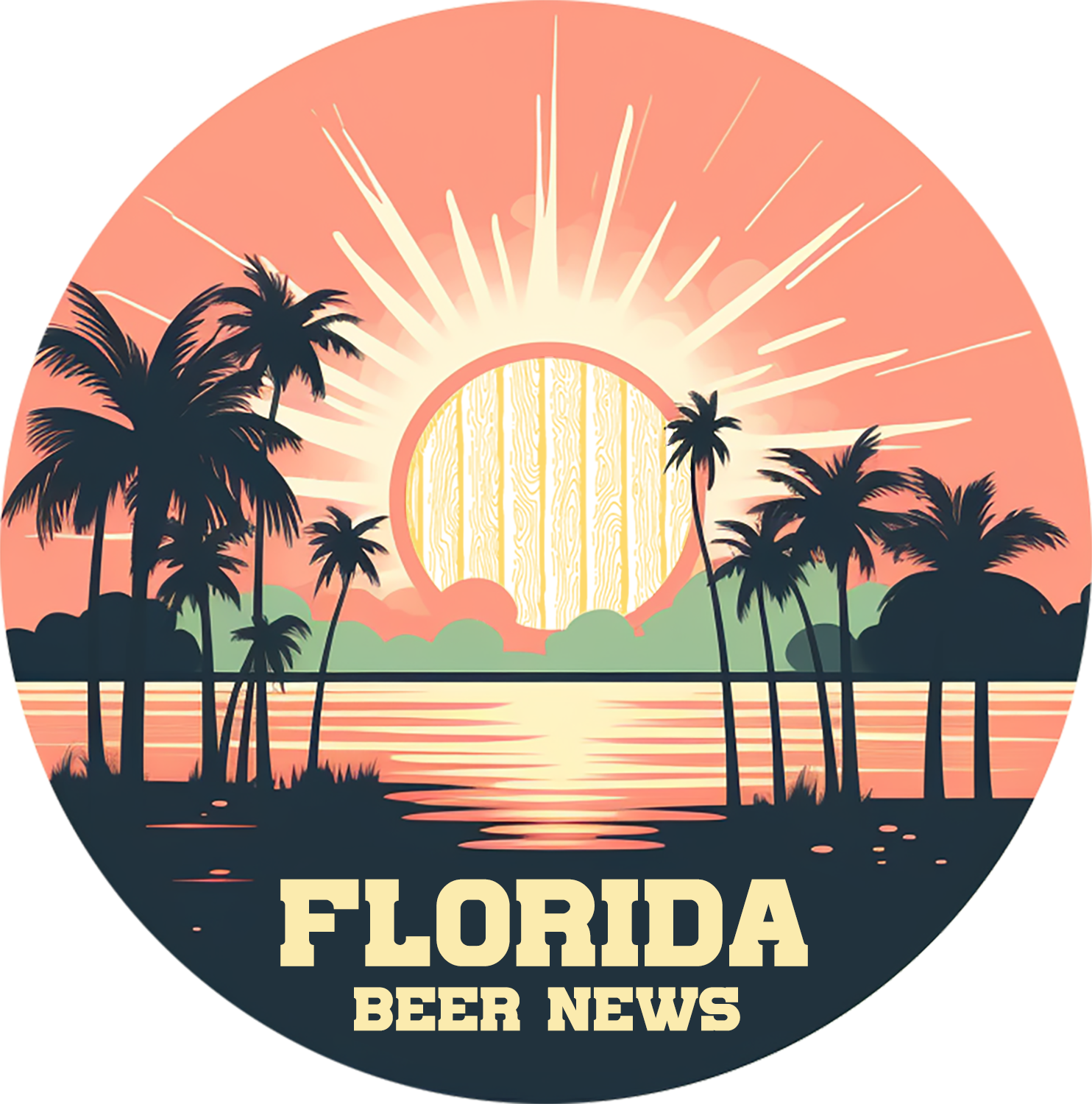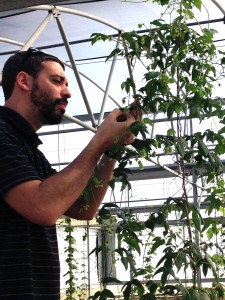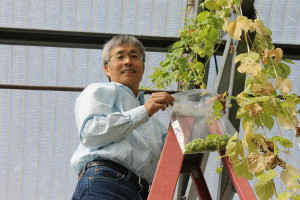By Jack Payne, guest writer to Florida Beer News
The hunt for the next great Florida agriculture success story is unfolding in both Apopka and Wimauma. The storybook ending the University of Florida’s Institute of Food and Agricultural Sciences hopes to write is one in which our state becomes a major hops producer.
That would provide a local supply to match the explosive growth of the craft brewing industry. Along the way, it would create jobs, increase growers’ and brewers’ profits, and give Florida beer devotees a chance to drink local.
Like so many previous success stories, it starts with science. Specifically, this story is set in a new hops yard in Apopka at the Mid-Florida Research and Education Center and the Gulf Coast Research and Education Center in Wimauma. Both are run by the University of Florida’s Institute of Food and Agricultural Sciences.
Our protagonists are environmental horticulturalists Brian Pearson in Apopka and Zhanao Deng in Wimauma, and plant physiologist Shinsuke Sagehara in Wimauma. Pearson started working on hops in his lab as a personal experiment before turning it into a trial of four hops varieties. Deng’s work as a breeder of sterile lantana is so respected that his varieties are being tested in Africa for its potential to repel malaria-carrying mosquitoes. He’s game to test it as a repellent to Zika-virus-carrying bugs as well if there’s a call for it.
Florida brewers import their hops all the way from Washington State and foreign countries because we can’t grow good hops in Florida – yet. The subtropical climate and local pests and diseases conspire against it.
It’s a heavy lift to overcome those obstacles. If it were easy, it would have been done years ago in tandem with the launch of Florida’s craft brewing industry. As Edison said, “Opportunity is
missed by most people because it is dressed in overalls and looks like work.”
The hops project is an example of how UF/IFAS sometimes swings for the fences. That comes at a cost. You have to have the stomach for striking out. Again, Edison described the innovator’s predicament well when he said, “I have not failed. I’ve just found 10,000 ways that won’t work.”
Pearson, Deng, and Sagehara will be taking a few hundred swings at once, thanks to local brewers’ donations of rhizomes (those are “root bulbs” to those not familiar with their availability from brewing suppliers) and equipment.
A hit, if it comes, won’t happen immediately. But 20 years ago a thriving Florida blueberry industry didn’t
seem all that likely either. Our breeders changed that. Florida growers now produce more than $75 million worth of blueberries annually – more than 95 percent of it in UF/IFAS-created varieties.
The hops experiments are also an example of how our research agenda is crafted with the input of the communities we serve. Simon Bollin, the Hillsborough County agribusiness development manager, helped identify the opportunity. There are about 20 breweries in Hillsborough County and more than 60 in the greater Tampa area.
The Hillsborough County Agriculture Economic Development Council quickly realized that the value-added production potential for local farmers from hops was promising, but the AEDC needed proof of concept. That is where the UF/IFAS Gulf Coast REC and Mid-Florida REC came in. It has a team of scientists that is essentially the discovery and innovation arm of agriculture throughout the area.
Bollin brought brewers and breeders together, and they decided hops were worth a try. Bollin arranged for the donations of plant material and equipment. The Florida Department of Agriculture and Consumer Sciences is lending its support through a $158,000 grant.
We have high hopes for hops, just as we do for peaches, pomegranates, and olives. You just can’t know ahead of time which crop will figure in the next success story. We just know that UF/IFAS scientists are likely authors of it, and right now they’re scribbling away in Hillsborough.
Jack Payne is the University of Florida’s senior vice president for agriculture and natural resources and leader of the Institute of Food and Agricultural Sciences.




